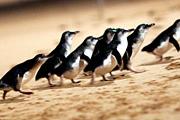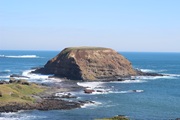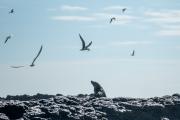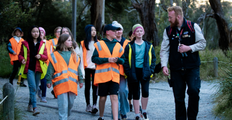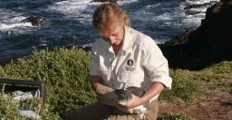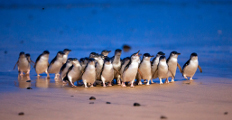Stay safe and help protect Phillip Island’s wildlife this summer
Phillip Island Nature Parks is asking the community to join local conservation efforts this summer and help protect wildlife.
The Nature Parks is partnering with Bass Coast Shire Council, the Department of Transport and Planning, Phillip Island Conservation Society and Wildlife Victoria to encourage the community to do their bit to keep wildlife safe as summer approaches.
Kim Noy, Wildlife Ranger at Phillip Island Nature Parks, said community vigilance was important to safeguard local wildlife this summer.
“The wildlife and coastlines of Millowl are part of what makes the island such a special place,” Ms. Noy said.
“We encourage residents and visitors to be our eyes and ears on the ground so rangers and rescue volunteers can respond to concerns as quickly as possible.”
Wildlife affected by extreme heat events may display unusual behaviours. Penguins wandering or lying in the open during the hot days is not normal behaviour and may indicate signs of heat stress. If you see this please urgently report this to Authorities.
The Nature Parks asked motorists to be on the lookout for Eastern barred bandicoots by looking for movement and eye-shine on the verges.
Long-neck turtles can be found crossing roads in summer, particularly near marshy areas, as they move during breeding season trying to find mates and an ideal nesting habitat. If you find them uninjured place them off the road in nearby vegetation.
Residents can help by placing bowls of water in quiet, shady parts of gardens away from people, pets and roads to help wildlife stay hydrated. Using the garden hose to spray mist into trees and shrubs can create cooler niches that wildlife can use to escape the heat.
Take care when driving, especially at dawn, dusk and at night when animals are most active. Newly-installed “Care for Wildlife” signs can also help to identify wildlife hotspots.
To report sick, injured, or orphaned wildlife, call Wildlife Victoria’s Emergency Response Service on 03 8400 7300 available 24 hours a day, 7 days a week.





